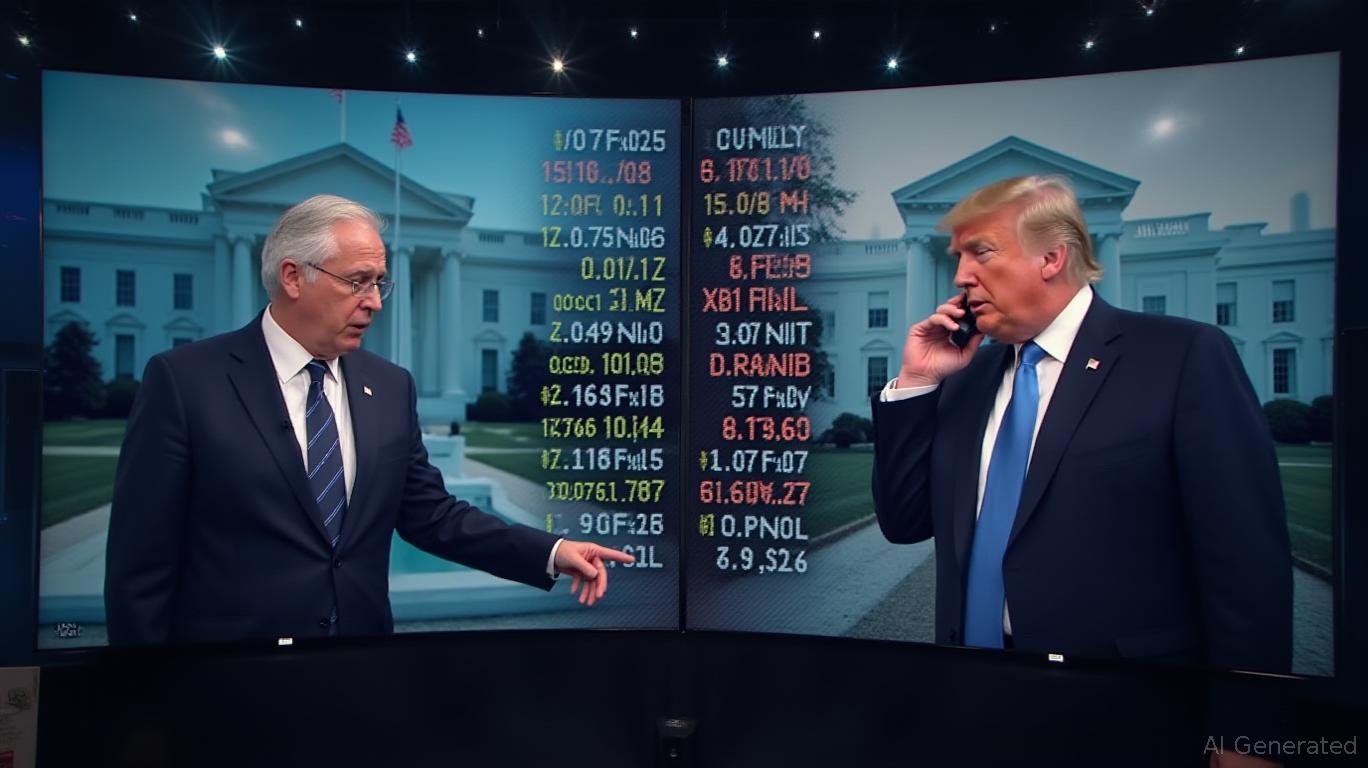Federal Reserve Chair Jerome Powell has highlighted the economic impact of the ongoing U.S. government shutdown, cautioning that the lack of data makes policy decisions more challenging while inflation stays high, as reported by an
Economic Times report
. In a recent press briefing, Powell admitted that the shutdown is weighing on economic growth, but stressed that these effects should reverse once the government reopens. At the same time, the central bank announced a 25-basis-point reduction in interest rates, bringing the federal funds rate down to a 3.75%-4.00% range, and temporarily halting the reduction of its balance sheet. The Congressional Budget Office projects that the shutdown could shrink GDP by at least $7 billion by 2026, with the damage increasing the longer the impasse lasts.
The Fed's latest move exposed internal disagreements, as the 10-2 split vote suggested Powell's influence over the committee may be weakening, according to an
Investing.com article
. Two members—Stephen I. Miran and Jeffrey R. Schmid—voted against the majority, with Miran pushing for a larger 50-basis-point cut and Schmid preferring no change at all. Bob Michele of JPMorgan remarked that Powell appears to be "losing his grip" on the central bank, pointing out that the dissenting votes reflect rising doubts about the Fed's current strategy. Powell's comments at the press conference added to the uncertainty, as he said a rate cut in December was "far from" certain, further clouding market expectations.
At the same time, President Donald Trump has stepped up his criticism of Powell, calling him "incompetent" and suggesting he might replace him before his term ends in May 2026, as noted in a
Zycrypto report
. Treasury Secretary Scott Bessent confirmed that the administration is narrowing down a shortlist of five candidates, which includes Fed Governor Christopher Waller and BlackRock's Rick Rieder. Trump's public rebukes, such as dubbing Powell "Jerome 'Too Late' Powell," show his frustration with the Fed's reluctance to cut rates more aggressively to boost growth and lower debt costs.
The cryptocurrency market has reflected this turbulence, with total market value slipping to $3.89 trillion as investors awaited signals from the Fed.
Bitcoin
dropped 2% to $112,859, while
Ethereum
fell 3% to $3,991. Analysts attributed the decline to uncertainty over Powell's policy direction, though spot Bitcoin ETFs attracted $202.48 million in new investments, indicating continued interest, according to a
Yahoo Finance article
. Bitwise's new Solana ETF drew $69.5 million on its first day, reflecting cautious optimism about alternative coins as the possibility of looser liquidity grows.
The Fed's rate cut and pause in balance sheet reduction have set the stage for possible gains in crypto markets, as risk assets have historically benefited from more accommodative policies. Still, liquidity remains tight, and analysts warn that stopping balance sheet reductions is not the same as resuming quantitative easing. The Crypto Fear and Greed Index dropped to 39 ("Fear"), showing persistent caution despite the policy shift, as mentioned in a
StreetInsider piece
. Investors are closely watching Powell's comments after the meeting, with a more dovish stance potentially sparking a short-term rally in Bitcoin and Ethereum.
The Fed's plan to end quantitative tightening by December signals a major move toward easing, but traders remain cautious about ongoing liquidity pressures, according to an
AMBCrypto article
. Market analyst Doctor Profit warned that tight financial conditions could persist even with lower rates, noting that instability in the repo market could trigger a crisis worse than the one in 2019. Bitcoin's near-term prospects remain uncertain, with resistance at $115,000 and support at $110,500, as discussed in a
CryptoFront article
.
